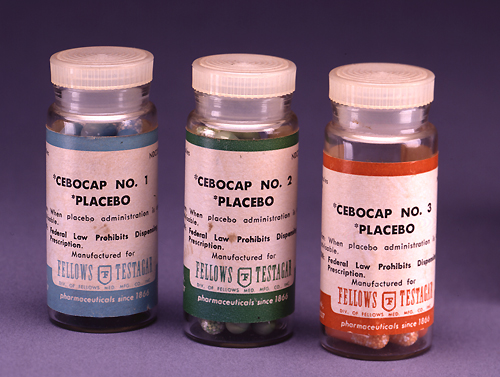The AJGP is under scrutiny again after publishing a study claiming 80% of GPs prescribe active placebos
GPs have taken to social media to challenge claims that most doctors are using active placebos, commonly antibiotics, to assist in managing patient expectations.
The controversial study, published this week in the Australian Journal of General Practice (AJGP) found almost 40% of GPs in the sample reported using inert placebo (such as saline spray or a water-based cream), while almost 80% had used an active placebo (such as antibiotics for a virus).
The GPs estimated that for every 100 patients treated, one in 11 would be given an active placebo such as antibiotics (42%), vitamins or minerals (17%), complementary treatments (10%) and analgesics (8%) for conditions outside these medications intended use.
The quantitative study surveyed 136 GPs and asked about their inert and active placebo use in clinical practice.
Survey of 0.34 % of GPs is NOT most Australian doctors (136/40,000) — https://t.co/L7jk74SW9Z via @abcnews
— Ewen McPhee ??????? (@Fly_texan) December 1, 2019
The study authors conceded the survey results were limited by the relatively low response rate in conjunction with not examining the reasons behind placebo use.
“… It is encouraging that the primary motivation for prescribing placebos is to provide clinical benefit, although a smaller proportion of GPs surveyed reported prescribing placebos to identify psychosomatic complaints or malingering, which could compromise the patient-practitioner relationship,” the study authors said.
Associate Professor Ben Colagiuri, from the School of Psychology at the University of Sydney, said while it was good news GPs were predominantly using placebos because they believed they could help their patients, the prescribing of antibiotics for purposes other than their design was concerning.
“The most common case is when a GP prescribes antibiotics when they know or strongly suspect that the patient doesn’t have a bacterial infection,” he said. “In these cases, they are prescribing antibiotics as a type of placebo, often because a patient expects or demands treatment. But antibiotics can have side-effects and there are problems with antibiotic resistance if we prescribe antibiotics too much.”
The study came under immediate fire online from the GPs Down Under (GPDU) Facebook group.
“One member of the GPDU group, Dr Michael Tam, conducted a survey in response to this article, with a much bigger sample size and response rate, and results will be published shortly,” said Victorian based GP and GPDU administrator, Dr Karen Price.
Dr Price said the unpublished GPDU survey would also show significantly lower use of placebos in general practice.
In addition, GPs pointed out on Twitter that if the GPDU study was to reveal different findings, it could serve as another blow to the reputation of the AJGP. The journal was already forced to retract of two melanoma articles in October which were factually incorrect according to international cancer guidelines.
There appears to be some serious reasons to question the editorial decisions at AJGP. This and the recent withdrawal of melanoma articles leaves a lot to be desired in terms of due diligence and just good old common sense
— Thinus van Rensburg (@tvren) December 2, 2019
Dr Price was also concerned by the mainstream media coverage of the study, which claimed doctors were being deceitful by not telling patients they were being administered placebo.
“The word deceitful is just such an anathema to most GPs, I think it’s actually damaging to what we know works, which is the therapeutical alliance, and the fact people actually do trust us – we know this from surveys,” Dr Price said.
n=136. Then reporting 80% of Drs do this. Outrageous.
Hardly generalisable.
First question on the Qualtrics survey as do you believe it is ok to use “deception” to prescribe placebo.What kind of Qn is that.
What an assumption. pic.twitter.com/bjulpA3B3z
— Karen Price (@brookmanknight) December 2, 2019
“General practice is not very well understood by the public because people love certainty and we deal in a whole lot of uncertainty – all the time. The skill we have as GPs is in diagnosis and bringing people through their life into levels of intervention when they need it, and keeping them going when they maybe don’t need it, but are convinced that they do.
“GPs manage to keep people out of hospital because we are reviewing our patients frequently and making decisions in a great sea of undifferentiated presentations. And, that is quite a skill – and not an easy one.”


